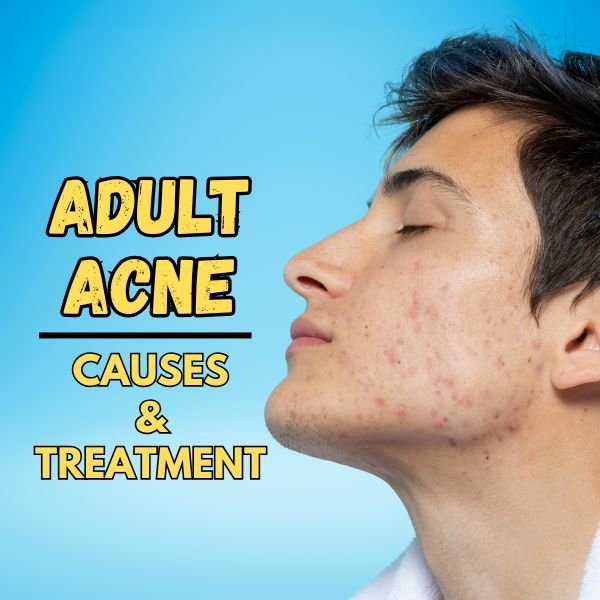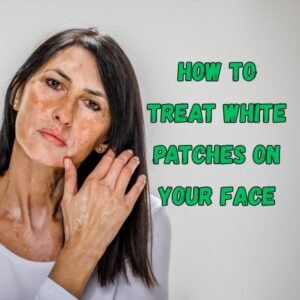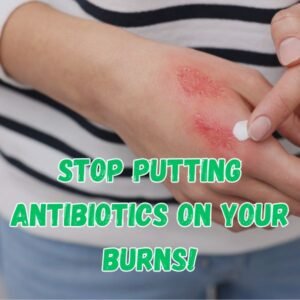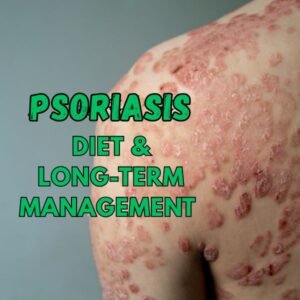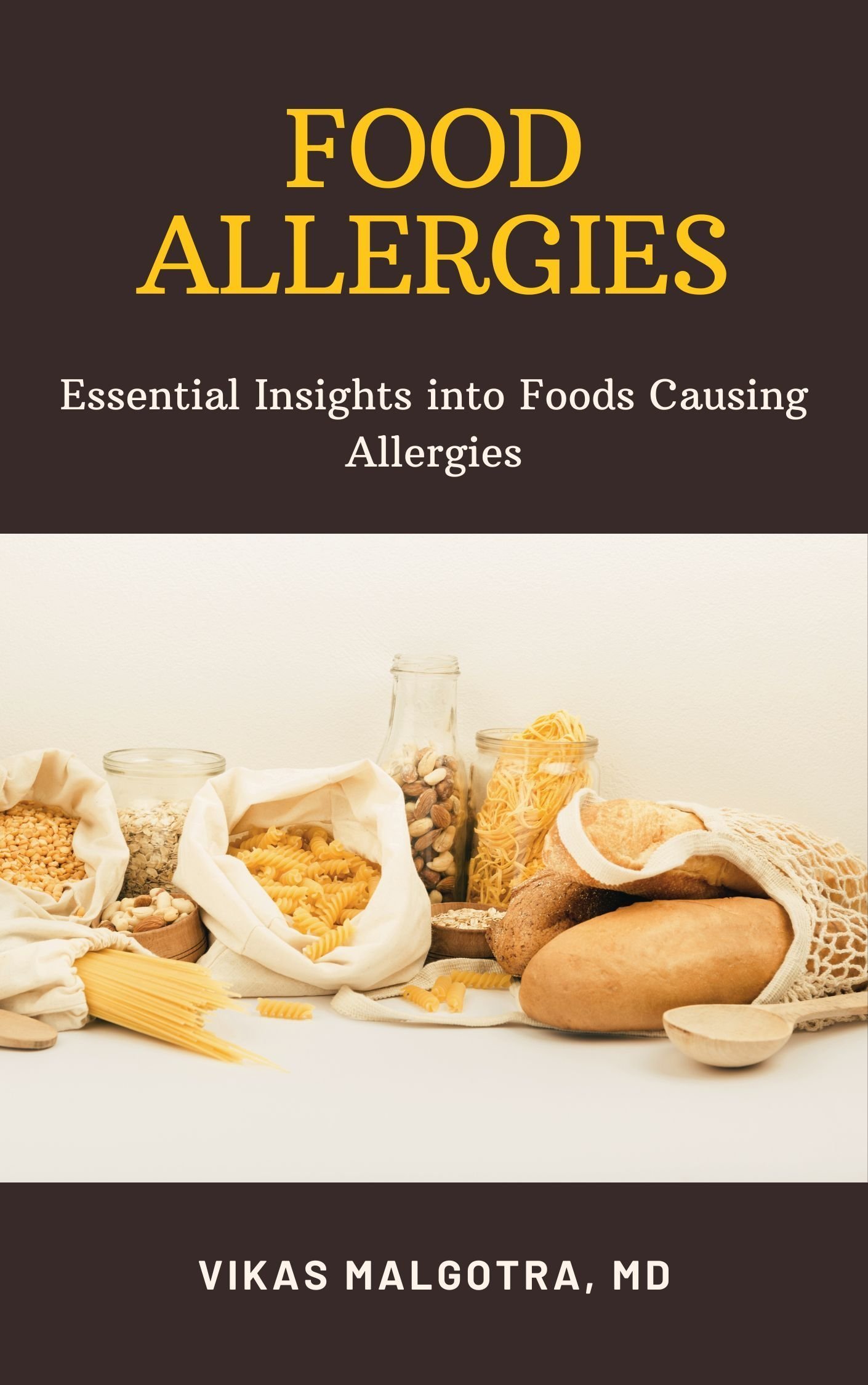Think acne is only for teens battling puberty? Think again. More adults than ever are experiencing persistent breakouts, often long after their teenage years have passed. The truth is, acne doesn’t come with an age limit. Understanding the causes of pimples in adults is essential for building an effective treatment plan—and finally achieving clearer skin.
The Core Causes of Pimples on Face in Adults
No matter your age, acne develops when pores become clogged by oil, dead skin cells, and bacteria. But in adults, the triggers behind these breakouts are often more complex:
- Overproduction of Oil (Sebum): Stimulated by fluctuating hormones or stress, adult skin may produce more oil, especially in the lower face area.
- Clogged Hair Follicles: Poor exfoliation or using the wrong skincare can lead to buildup and blackheads.
- Bacterial Growth: Acne-causing bacteria (Cutibacterium acnes) multiply in blocked pores, leading to inflammation.
- Inflammation: Chronic inflammation worsens the cycle and increases the likelihood of red, painful pimples.
Teen Acne vs Adult Acne: What’s the Difference?
Teen acne is mostly driven by puberty-related hormone surges, typically affecting the T-zone—forehead, nose, and chin. It usually includes whiteheads, blackheads, and small pustules.
In contrast, adult acne:
- Appears more frequently in the lower face (chin, jawline, neck).
- Often includes deeper, cystic pimples that are harder to treat.
- May occur cyclically, especially around menstruation.
- Persists longer and is more prone to post-inflammatory hyperpigmentation (PIH) and scarring.
Top Adult-Specific Causes of Pimples on Face
1. Hormonal Imbalance
One of the most common causes of pimples on face in adults, especially in women, is hormonal fluctuation. Adult acne may flare before menstruation, during pregnancy, or around menopause. Polycystic Ovary Syndrome (PCOS) is another significant contributor.
2. Chronic Stress
Stress boosts the hormone cortisol, which increases oil production and inflammation. Combine that with disrupted sleep and reduced skin healing—and breakouts thrive.
3. Skincare & Cosmetics
Using pore-clogging or overly harsh products can lead to breakouts. Adults often opt for anti-aging or heavy cosmetics, which may contain comedogenic ingredients. Over-washing or over-exfoliating can strip the skin barrier, leading to rebound oiliness and acne.
4. Diet and Gut Health
Some studies link high glycemic index foods and dairy to acne. In adults, imbalanced gut flora may trigger inflammation and disrupt hormone levels, leading to breakouts.
5. Environmental & Lifestyle Factors
Exposure to pollution, prolonged mask use (maskne), smoking, or constant face touching can cause breakouts. Friction from helmets, tight headbands, or phones also leads to a condition called acne mechanica.
Best Treatments for Adult Acne vs Teen Acne
Teen Acne Treatments
- Topicals: Benzoyl peroxide, salicylic acid
- Retinoids: Adapalene (helps regulate skin turnover)
- Oral Meds: Antibiotics or isotretinoin for severe cases
- Lifestyle Focus: Reducing sugar, managing school stress
Adult Acne Treatments
Adult acne often requires more gentle yet targeted care:
- Retinoids: Tretinoin or adapalene unclog pores and reduce fine lines.
- Azelaic Acid: Soothes inflammation and helps with pigmentation—safe for sensitive or pregnant skin.
- Benzoyl Peroxide Combinations: Especially when paired with clindamycin or adapalene.
- Hormonal Therapies:
- Oral contraceptives help regulate estrogen and progesterone.
- Spironolactone reduces androgen levels (common dosage: 50–150 mg/day).
- Oral Isotretinoin: For deep cystic or scarring adult acne.
- Barrier Repair Skincare: Gentle cleansers and moisturizers support skin resilience.
Why Treating Adult Acne Requires a Holistic Approach
Adult skin is thinner and slower to regenerate than teenage skin. This means treating breakouts isn’t just about drying them out—it’s about preventing future flare-ups while maintaining hydration and reducing scarring.
A holistic plan may include:
- A customized skincare regimen
- Hormonal evaluations (especially for women with irregular periods or hair growth)
- Dietary adjustments to reduce sugar and dairy
- Stress management strategies like yoga, meditation, or therapy
Prevention Tips: How to Minimize Adult Breakouts
Want to prevent adult pimples before they start? Follow these 6 proactive steps:
- Choose the Right Skincare: Always look for “non-comedogenic” and “fragrance-free” labels.
- Clean Brushes & Phones: Regularly sanitize anything that touches your face.
- Watch What You Eat: Reduce sugar, refined carbs, and dairy.
- Stay Hydrated: Helps flush toxins and regulate oil production.
- Get Quality Sleep: Poor sleep disrupts healing and hormone balance.
- Manage Stress: Incorporate breathing exercises, journaling, or digital detoxes.
When to See a Dermatologist
If your adult acne is:
- Persistent despite OTC products
- Painful, cystic, or causing scarring
- Occurring with signs of hormonal imbalance (missed periods, facial hair)
…it’s time to seek expert help. A dermatologist can tailor treatments like hormonal therapy, prescription-strength retinoids, or oral medications based on your acne type.
Conclusion: Adult Acne Is Real—and Treatable
The belief that acne only affects teenagers is outdated and misleading. The causes of pimples in adults range from hormones and stress to skincare mistakes and lifestyle triggers. The good news? With the right approach, adult acne is highly manageable.
Whether it’s switching to gentler products, tackling hormonal imbalances, or simply upgrading your routine, consistency and awareness are your best allies to achieve a clear skin.
FAQs About Adult Pimples
Q. Can adults get acne even if they didn’t have it as teens?
A. Yes, adult-onset acne is common and can appear even if you had perfectly clear skin in your youth.
Q. Are adult pimples always hormonal?
A. Not always. While hormones play a big role, diet, stress, and skincare habits are also major triggers.
Q. What’s the fastest way to treat adult pimples?
A. Topical retinoids combined with lifestyle tweaks (like reducing sugar and stress) offer fast and sustainable results.
Can diet alone clear adult acne?
Diet can improve acne, especially if you have food sensitivities—but it’s rarely the only solution. A holistic approach is best.

